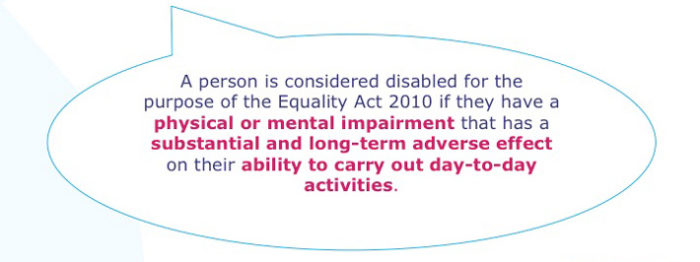Mouse ergonomics
Useful insights on mouse selection and use, creating a more comfortable and productive workstation...
Useful insights on mouse selection and use, creating a more comfortable and productive workstation...

According to charity Allergy UK, 44% of adults in the UK suffer from at least one allergy, and the number of sufferers is on the rise. Given these stats, employers need to manage allergies at work effectively, to support affected staff.
For those at greatest risk, the tiniest trace of an allergen can trigger severe symptoms and, in some cases, cause a fatal or near-fatal reaction.
Under the Equality Act, a worker will be considered disabled if they can show that they suffer from a long term (i.e. over 12 months or more) physical or mental impairment which has a substantial (i.e. more than trivial) effect on their ability to carry out day-to-day activities.
There are several cases where employees with allergies have been held to be disabled:
In Glass v Promotion Line Ltd, an Employment Tribunal found that the employee’s eczema was a disability within the meaning of the Equality Act. In this case, the employee had to apply cream every morning and the process generally took an hour. The Tribunal held that it was a long-term physical impairment – she had suffered from the condition most of her life and it was likely she would continue to be affected by it for the rest of her life. It did have a significant impact on her ability to carry out day to day taks, such as to socialise or even leave her home.
Another case, Wheeldon v Marstons plc, involved a chef with a life-threatening peanut allergy. He always carried adrenaline auto-injectors and had been in hospital on many occasions. When at work, he suffered a severe allergic reaction and he did not return to work. In this case, the employment tribunal found that his condition met the definition in the Equality Act.
These cases were decided on their individual merits; you cannot assume that everyone who has eczema, or a peanut allergy, will be considered disabled; the allergy will still need to meet the definition of having a substantial and long-term effect on their ability to carry out everyday activities.
If an allergy amounts to a disability under the Equality Act 2010, employers have a duty to make reasonable adjustments.
When taking into account what is ‘reasonable’, the statutory code of practice states that some of the factors which should be considered are:
In Dyer v London Ambulance NHS Trust, the employment appeal tribunal (EAT) stated that providing a workplace free from aerosols and perfume was not a reasonable adjustment that the employer could make to accommodate an employee who could suffer from a life-threatening reaction to these products. The EAT found that imposing a ban would not have been reasonable given the nature of the role and the workplace.
While this case shows an extreme set of circumstances, in most cases some reasonable adjustments will be possible.
Depending on the individual and their role, examples of typical adjustments in response to allergies at work might include:
 Conclusion
ConclusionUnder the Health and Safety at Work etc Act 1974, employers must ‘so far as is reasonably practicable’ protect the health and safety of employees by removing or reducing workplace risks. Therefore, even if an employee doesn’t have a disability, employers may have to make a reasonable adjustment to accommodate their allergies at work.

Contact our health, safety, ergonomics & wellbeing consultants
Useful insights on mouse selection and use, creating a more comfortable and productive workstation...
Useful insights on mouse selection and use, creating a more comfortable and productive workstation...
What to do, how and when, to manage risks, avoid prosecution, and protect your corporate reputation and people...
What to do, how and when, to manage risks, avoid prosecution, and protect your corporate reputation and people...
Learn how our consultants help clients tackle real world health and safety issues...
Learn how our consultants help clients tackle real world health and safety issues...